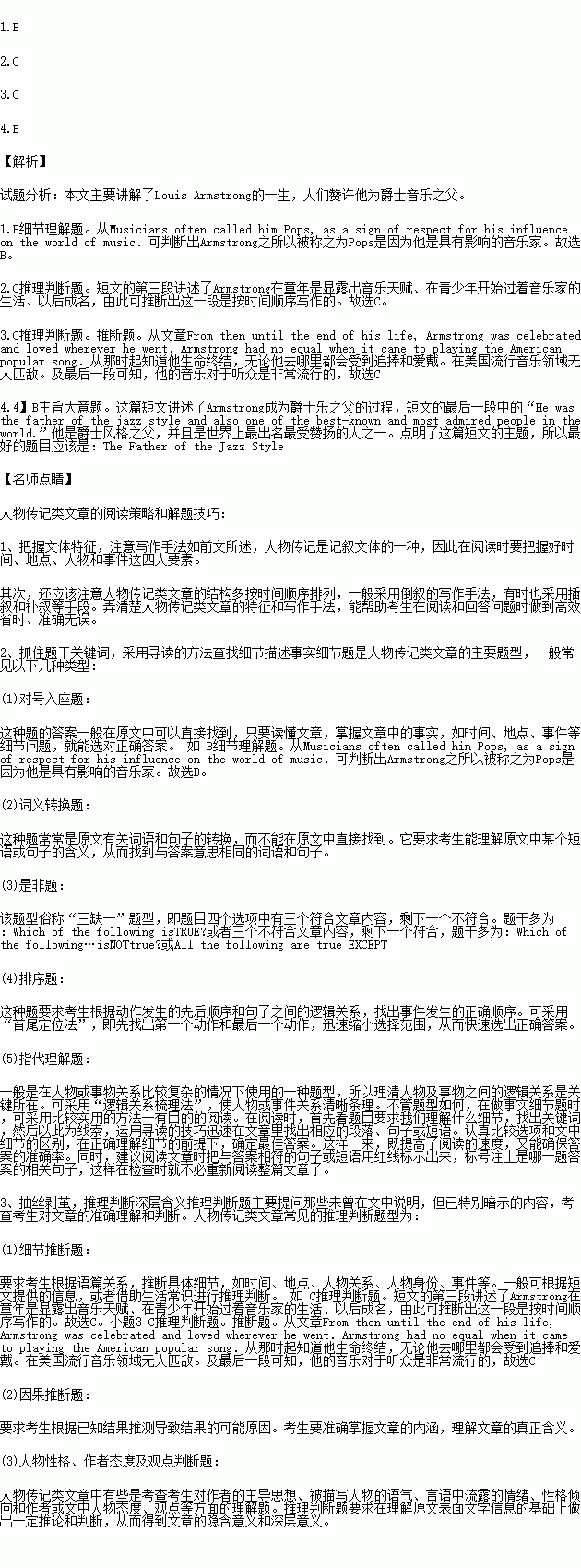题目内容
Louis Armstrong had two famous nicknames (绰号). Some people called him Bagamo. They said his mouth looked like a large bag. Musicians often called him Pops, as a sign of respect for his influence on the world of music.
Born in 1901 in New Orleans, he grew up poor, but lived among great musicians. Jazz was invented in the city a few years before his birth. Armstrong often said, “Jazz and I grew up together.”
Armstrong showed a great talent for music when he was taught to play the cornet (短号) at a boy’s home. In his late teens, Armstrong began to live the life of a musician. He played in parades, clubs, and on the steamboats that traveled on the Mississippi River. At that time, New Orleans was famous for the new music of jazz and was home to many great musicians. Armstrong learned from the older musicians and soon became respected as their equal. In 1922 he went to Chicago. There, the tale of Louis Armstrong begins. From then until the end of his life, Armstrong was celebrated and loved wherever he went. Armstrong had no equal when it came to playing the American popular song.
His cornet playing had a deep humanity (仁爱) and warmth that caused many listeners to say, “Listening to Pops just makes you feel good all over.” He was the father of the jazz style and also one of the best-known and most admired people in the world. His death, on July 6, 1971, was headline news around the world.
1.Armstrong was called Pops because he .
A. looked like a musician
B. was a musician of much influence
C. showed an interest in music
D. traveled to play modern music
2.The third paragraph is developed .
A. by space B. by examples
C. by time D. by comparison
3. Which statement about Armstrong is true?
A. His tale begins in New Orleans.
B. He was born before jazz was invented.
C. His music was popular with his listeners.
D. He learned popular music at a boy’s home.
4.Which would be the best title for the text?
A. The Invention of the Jazz Music
B. The Father of the Jazz Style
C. The Making of a Musician
D. The Spread of Popular Music
 新课标快乐提优暑假作业陕西旅游出版社系列答案
新课标快乐提优暑假作业陕西旅游出版社系列答案 暑假衔接培优教材浙江工商大学出版社系列答案
暑假衔接培优教材浙江工商大学出版社系列答案 欣语文化快乐暑假沈阳出版社系列答案
欣语文化快乐暑假沈阳出版社系列答案

